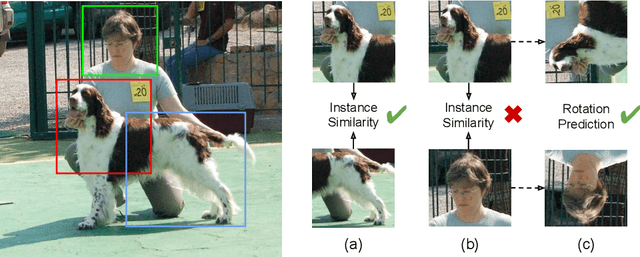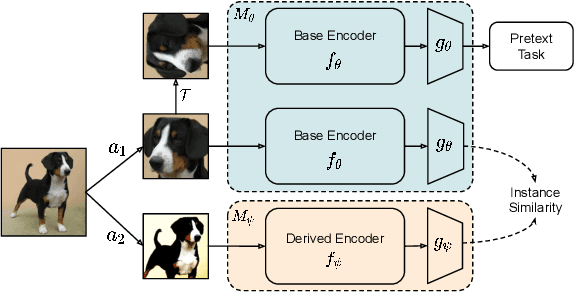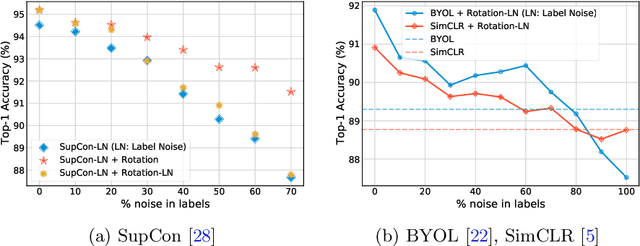Towards Efficient and Effective Self-Supervised Learning of Visual Representations
Paper and Code
Oct 18, 2022



Self-supervision has emerged as a propitious method for visual representation learning after the recent paradigm shift from handcrafted pretext tasks to instance-similarity based approaches. Most state-of-the-art methods enforce similarity between various augmentations of a given image, while some methods additionally use contrastive approaches to explicitly ensure diverse representations. While these approaches have indeed shown promising direction, they require a significantly larger number of training iterations when compared to the supervised counterparts. In this work, we explore reasons for the slow convergence of these methods, and further propose to strengthen them using well-posed auxiliary tasks that converge significantly faster, and are also useful for representation learning. The proposed method utilizes the task of rotation prediction to improve the efficiency of existing state-of-the-art methods. We demonstrate significant gains in performance using the proposed method on multiple datasets, specifically for lower training epochs.
 Add to Chrome
Add to Chrome Add to Firefox
Add to Firefox Add to Edge
Add to Edge